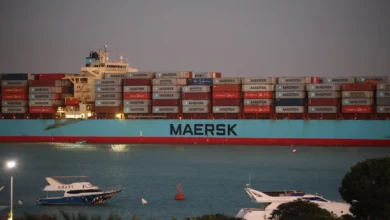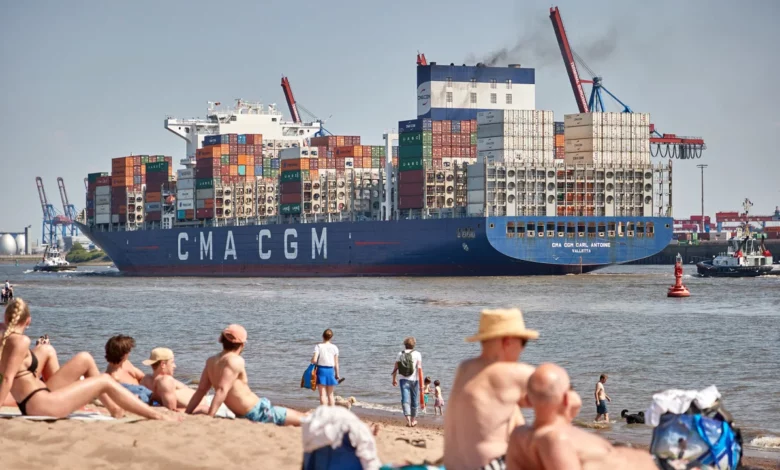
The shipping industry is a behemoth, transporting more than 80 percent of the world’s traded goods in tens of thousands of huge vessels powered by fossil fuels.
As a result, its climate impact is enormous: It produces around three percent of all human-caused planet-heating pollution. And experts say the industry has flown under the radar when it comes to climate action.
That could change this week.
In an unassuming brown building on the River Thames in London, representatives from the 175 member states of the International Maritime Organization, the UN body that regulates global shipping, are gathered for a highly anticipated set of negotiations expected to conclude on Friday with a commitment to dramatically cut the industry’s planet-heating pollution.
What’s decided here will have implications for the world’s ability to tackle the climate crisis. Some experts say – if the IMO gets it right – it will be the “climate deal of the decade.”
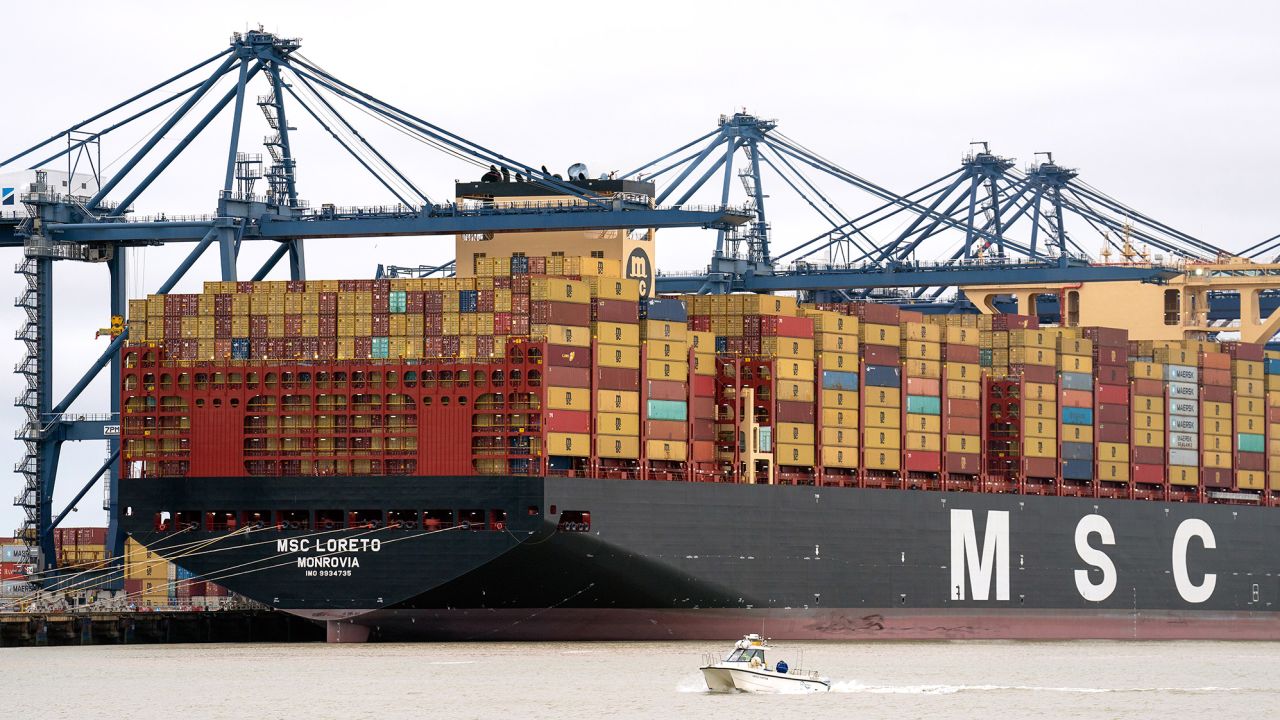
‘A bit of a Wild West’
Even though the amount of planet-heating pollution shipping currently produces is more than the whole of Germany, it “has been ignored for a long time,” said Faïg Abbasov, the director of shipping at the non-profit Transport & Environment.
The industry was not directly included in the Paris Agreement on climate, nor does it currently have a pledge to reach net-zero emissions – which would mean removing from the atmosphere at least as much planet-warming pollution as it emits.
One reason that shipping has received less scrutiny than other transport-related industries, like aviation, is that few people have direct contact with it, Abbasov told CNN.
“Maritime space is a bit of a Wild West because ships are out of sight, out of mind,” Abbasov said.
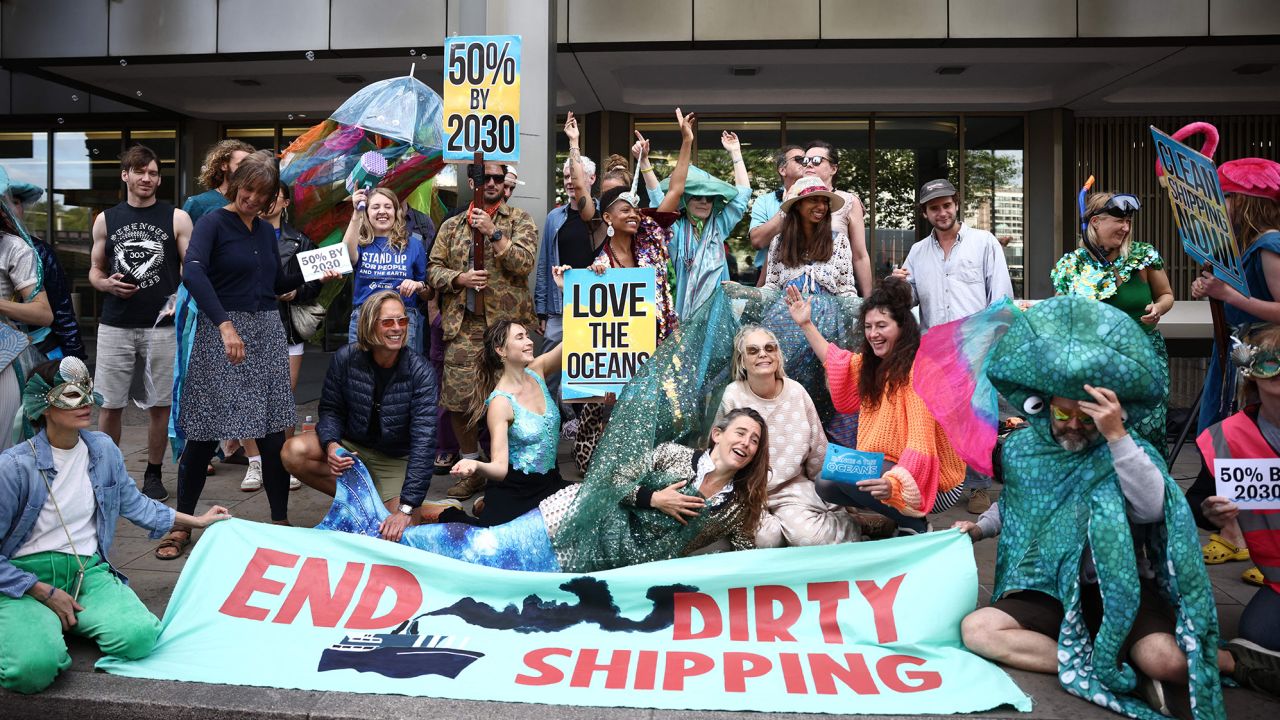
The industry’s current climate commitment is to cut levels of planet-heating pollution in half by the middle of the century, compared to 2008 levels – ambition levels that have been criticized, including by UN secretary general António Guterres, as inadequate given the scale of the climate crisis.
Shipping organizations deny a lack of ambition. Natasha Brown, the head of public information services at the IMO, said mandatory energy efficiency measures were introduced back in 2011. “The focus has been on cutting emissions for more than a decade,” she told CNN.
The industry “takes its responsibility to reduce [its climate impact] very seriously,” said Stuart Neil, director of strategy and communications at the International Chamber of Shipping, the industry’s main international trade association.
While the shipping industry has grown, the levels of planet-heating pollution it produces have grown much more slowly, he told CNN. Data from a 2020 IMO analysis of shipping emissions shows that while shipping activity steadily increased from 1990 to 2020, the industry’s carbon dioxide emissions began to plateau around 2008.
The climate deal of the decade
Yet left unchecked, shipping’s emissions could increase by 50 percent by mid-century, according to an IMO assessment. That’s one reason there is such a high level of anticipation around the IMO talks.
The negotiations are “perhaps the most significant moment in the shipping climate debate,” Abbasov said.
John Maggs, the president of the Clean Shipping Coalition, went even further. “If they get it right, probably it will be the biggest climate deal of the year, if not the decade,” he told CNN.
The key question is what the final commitment will look like.
Some campaigners are calling for targets to reduce planet-heating pollution by 37 percent by 2030 and 96 percent by 2040, to keep the industry within Paris Agreement ambitions to limit global warming to 1.5 degrees Celsius above pre-industrial levels. Others want to decarbonize faster, calling for zero emissions by 2040.
But certain countries, including China, India and Brazil – those that tend to ship a lot of raw materials, often over long distances – have been pushing back, arguing ambitious action could affect trade and undermine their economies, said Abbasov.
In response, climate experts say these are short term costs and are dwarfed by the costs of tackling the climate crisis in these same countries.
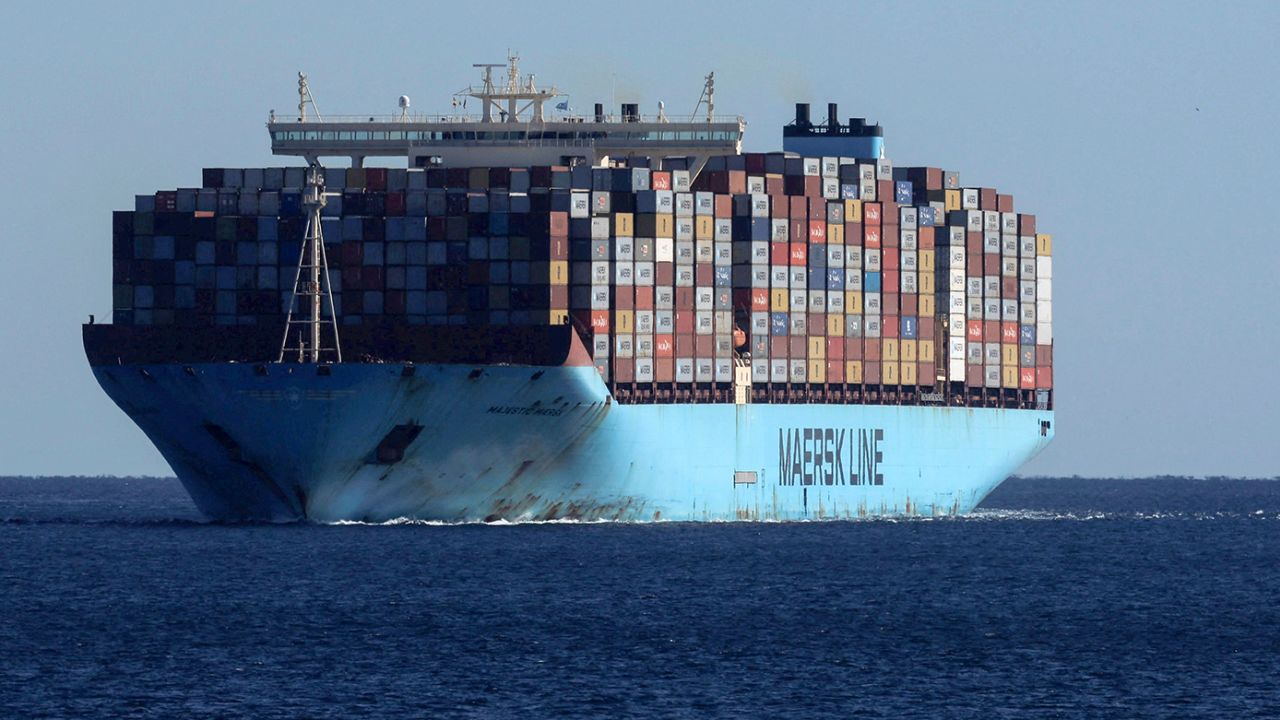
Maggs said on Monday that what was in the draft documents fell short of the strong targets he and others are pushing for. They included a commitment to reach net zero by 2050 and interim targets for a 20 percent reduction in emissions by 2030 and 70 percent by 2040.
Ambitious interim targets are vital, Maggs said. “Absolutely without a shadow of a doubt, the 2030 target is the most important,” he said. Without a strong pledge, “all that’s going to happen is everybody’s going to sit on their hands for another 10 years,” he added.
Hard to go green
Shipping is often put in the category of industries that are very hard to make climate-friendly, because there are few easily available alternatives to the dense, tar-like heavy fuel oil on which ships run. Cargo ships are difficult to electrify because the batteries required to propel them across oceans would be enormous.
Clean fuels are available, such as green hydrogen – which is made using renewable energy – but they are much more expensive. Abbasov said these fuels need more funds for research and development, but investors are waiting for a demand signal from the shipping industry.
There is still plenty that the shipping industry can do right now and for relatively little cost, according to a recent analysis by the consultancy firm CE Delft. It found that the industry could slash planet-heating pollution nearly in half by 2030 at an extra cost of 10 percent compared to business-as-usual.
It suggested three actions: reducing the speed of ships, as the slower they go, the less fuel they burn; retrofitting some ships to use modern sails or kites to take advantage of wind power; and increasing the amount of clean fuels used to make up around 5 percent to 10 percent of shipping fuel.

There remains a “collective action” problem, Abbasov said. Companies don’t want to incur costs to make changes if others are still doing nothing. “The only way from our perspective to change that is through mandatory government regulation,” he said.
Some governments are acting. Last year, the European Union agreed to add shipping to its carbon market, meaning ships traveling to or within the EU will be forced to pay for their planet-heating pollution. The bloc also agreed that ships will have to use a certain percentage of clean fuels.
The idea of a carbon levy on shipping’s carbon pollution is also gaining traction. The idea is to both incentivize climate action and provide a fund that could be directed toward developing countries, which are facing the most significant impacts of the climate crisis, despite doing the least to cause it.
‘Be bold’
The IMO will publish its final strategy document, including revised climate commitments on Friday.
At the opening of the talks last week, the IMO secretary-general Kitack Lim urged delegates to “be ambitious and bold.”
If the shipping industry fails to make significant climate commitments this week, it’s going to have big implications for global climate ambitions, Maggs said. “Shipping is a really, really big piece of the puzzle.”
“At the end of the day, we’re all going to have to go to zero,” he added. “If the shipping industry makes that decision today, it’s going to be a relatively smooth path. If it makes that decision in 10 years time it’s going to be be like dropping off a cliff.”


